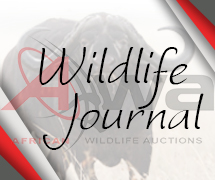Success Story Of A Brangus Stud On An Eastern Cape Dairy Farm
Success story of a Brangus stud on an Eastern Cape dairy farm
By Mike Burgess |6 May 2024 | 7:00 pm
In 2001, Steve Kretzmann, introduced a beef component to his dairy farm, Edendale, in the Eastern Cape. Mike Burgess visited him recently to better understand the impact that the Panorama Brangus stud has had on his agricultural venture near East London.
Steve Kretzmann (left) and his son Tyla on Edendale among some Brangus cows and calves. Tyla is back on the farm full-time after training in agricultural mechanics at McCormick Tractors. Photo: Mike Burgess
It was an insurance policy, says Steve Kretzmann (56) about his decision to introduce beef cattle to the 603ha Edendale dairy farm 23 years ago. “We did not want to keep all our eggs in one basket … when the milk price was down, the weaner price was up, and so the two helped to carry one another.”
Although most of the energy and resources on Edendale are still channelled into producing feed, including 30ha of kikuyu pastures and 32ha of silage maize for
almost 200 dairy cows, the remaining natural grazing is today utilised exclusively by the Panorama Brangus stud defined by 132 breeding females and 81 open heifers.
The introduction of genetics from numerous Eastern Cape and KwaZulu-Natal Brangus studs over the years has helped Steve, and more recently, his son Tyla (24) lay a broad genetic foundation from which to attempt to breed a “short, hardy, early-maturing [Brangus] type animal that produces calves with the best possible weaning weights”.
Building a Brangus Stud
Steve’s father, Vernard, bought Edendale in 1965 and transformed it into a profitable dairy farm. Steve matriculated in 1985, and after two years of national service, returned to farm with his father. In 1993, when his father passed away, he took over the Edendale dairy operation.
As for the beef initiative, it all started in 2001 when Steve bought 20 commercial Red Angus heifers from local farmer Roger Weyer. These cows were put to a Brahman bull and Steve remembers how well the hybrid-vigour boosted offspring (brindle in colour and horned) on Edendale.
Steve farmed with these crosses for a few years, but in 2007 bought his first Brangus bull from the Montane Brangus stud of the Morgan family, near Adelaide, in the Eastern Cape.
Panorama Brangus stud cows and calves on the farm Edendale.
Females produced from Steve’s now six-year-old Angus-cross-Brahman breeding initiative were then put to this newly acquired Red Brangus bull. The resultant offspring were beautiful red polled calves with exceptional uniformity that would pave the way for the eventual registration of the Panorama Brangus stud in 2013.
In the same year, Steve purchased 30 Brangus heifers (20 in-calf and 10 open) from Fairbridge Brangus of Delwyn Roberts (Maclear, Eastern Cape) that would prove to be particularly influential in the future Panorama Brangus stud.
Over the years, Steve has sourced bulls from Montane Brangus; the Rosewall Brangus stud of JJ Rosewall (Kokstad in KwaZulu-Natal); Blackwoods Farming of Kurt Donian (Middelburg, Eastern Cape); the Karoo Brangus stud of David Lord (Hofmeyr, Eastern Cape); FFT Brangus of Gerald Fletcher (Hofmeyr, Eastern Cape); and Kermar Brangus of Mark and Kerry Cockin (Cathcart, Eastern Cape).
Production
A central focus of the Kretzmanns is to breed the most efficient and fertile cow possible for the demanding natural veld conditions on Edendale. Over the years, Steve has learnt that the most productive cows are almost never the larger-framed, well-conditioned ones you would expect to produce the best calves.
“The best producing animal is more than often the smaller-framed cow that gives you a 250kg weaner every year, despite its size.”
The focus on Edendale is therefore to breed the most efficient medium-framed Brangus cow that can wean half its own body weight. “We for early-maturing cows that are under 500kg,” explains Steve.
“The ultimate goal is to breed cows that produce weaners 50% of their own weight.”
Currently, the average mature Brangus cow on Edendale weighs 469kg (at weaning) and wean on average 46% of their own body weight. Calves are weaned at about 200 days with average weights for bull and heifer calves being 215kg and 195kg respectively.
The mating season for the Panorama Brangus herd is from November to February in single-sire-herds. Heifers enter the herd at a replacement rate of 30% a season and are put to the bull for the first time at the age of 25 to 27 months.
Last season a calving rate of 77% was achieved with calves at birth weighing an average 34kg. The average herd inter-calving period (ICP) is 415 days, with the best ICP for an individual cow being 377 days.
Management
Panorama Brangus breeding females receive a comprehensive supplementation regime to realise their full productive potential on Edendale’s limited natural veld resources not utilised by the dairy herd.
Heifers are for example fed a mixture of maize germ meal and Molatek Beef Fat 33+ from weaning until calving at a rate of approximately 2kg/ animal/day.
Once having calved they then receive the same ration as mature cows, which includes a mixture of chicken litter, maize germ meal and liquid molasses at a rate of about 3kg/animal/day all year round.
Cows also receive another mix of Fostec P12, Molatek Dryveld 46, bone meal, feed lime, straight run maize meal, liquid molasses, and salt ad lib 365 days a year. Intake
varies from season to season, depending on rainfall and the resultant quality of grazing on Edendale.
A standard inoculation regime is adhered to while all cattle are dewormed and boosted with Multimin (an injectable source of zinc, manganese, copper, selenium and chromium) three times a year.
To reduce the risks of virulent redwater, heartwater and gallsickness, cattle are dipped every two weeks (throughout the year) in a plunge dip. Newly acquired Brangus bulls are carefully observed for redwater symptoms for two weeks after arrival on Edendale. If they develop any signs of the tickborne disease, they are blocked.
Marketing Bulls
In 2023, seven Panorama Brangus bulls (four two-year-olds and three three-year-olds) were sold at the East Cape Brangus Club Sale (Tarkastad) and from Edendale itself. Bulls are given silage ad lib for 120 days before being marketed.
The average price for the three Panorama bulls sold at the 2023 East Cape Brangus Club Sale was an impressive R87 000, and the top-priced animal went for R115 000.
A self-bred Brangus bull [SSK 20-61] that is being used in a cow herd on the farm
Edendale, near East London.Four bulls were sold from Edendale in 2023 at an average price of R30 000, and Steve says he has been delighted at the interest shown by Brangus breeders in the Panorama Brangus genetics.
“Our greatest achievement has been selling top-quality bulls to other stud breeders,” he says. “It shows that they see potential in our bulls being used in their own herds.”
And so, as Tyla, the third-generation Kretzmann, begins to take up his place in earnest on the almost 60-year-old dairy farm he will also be required to preserve and add to the already significant legacy of the Panorama Brangus Stud.








